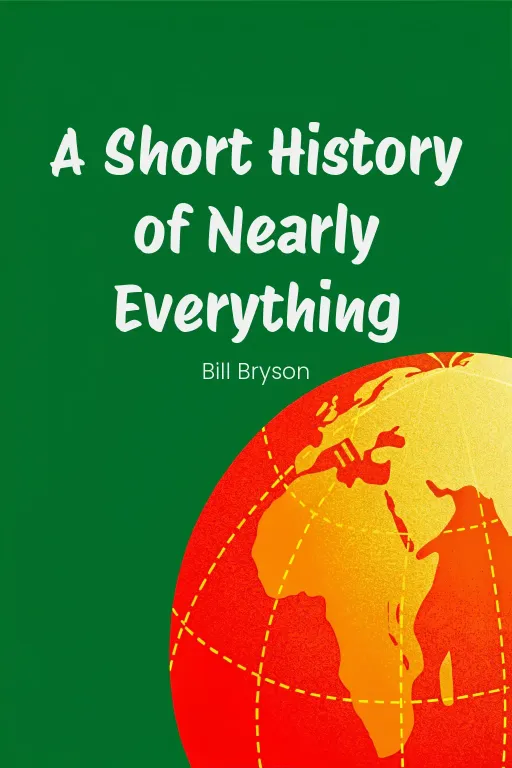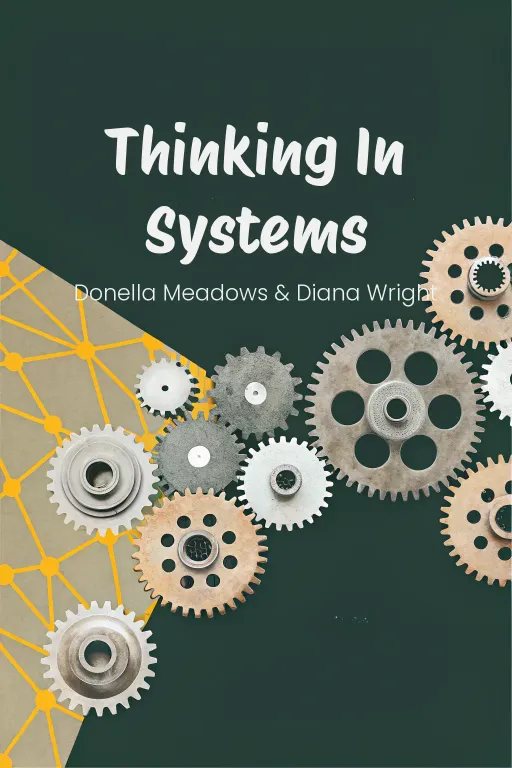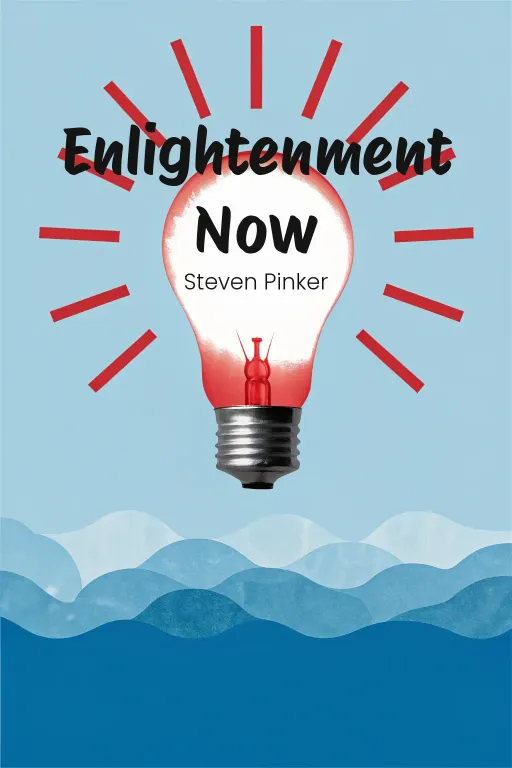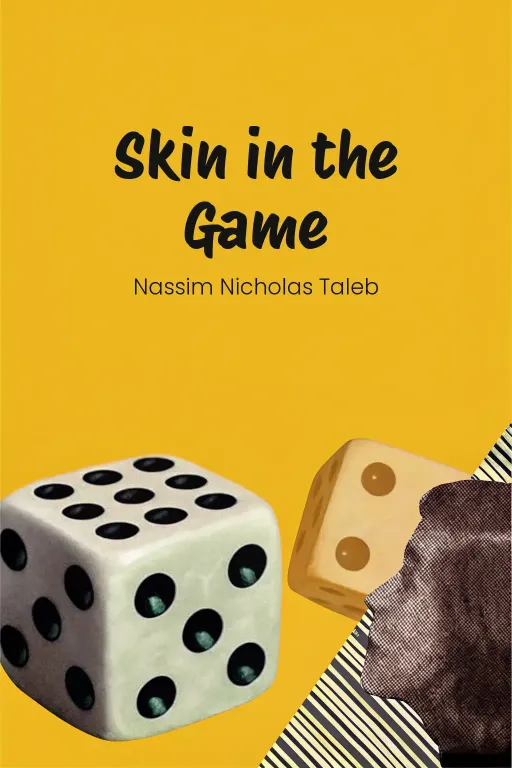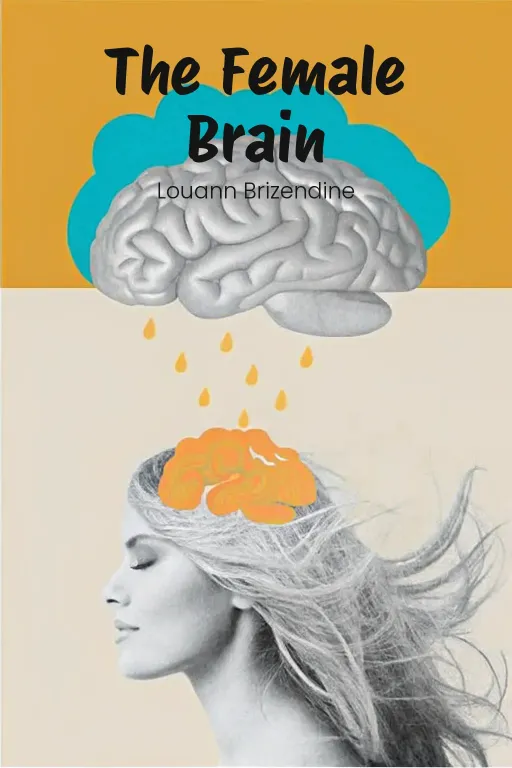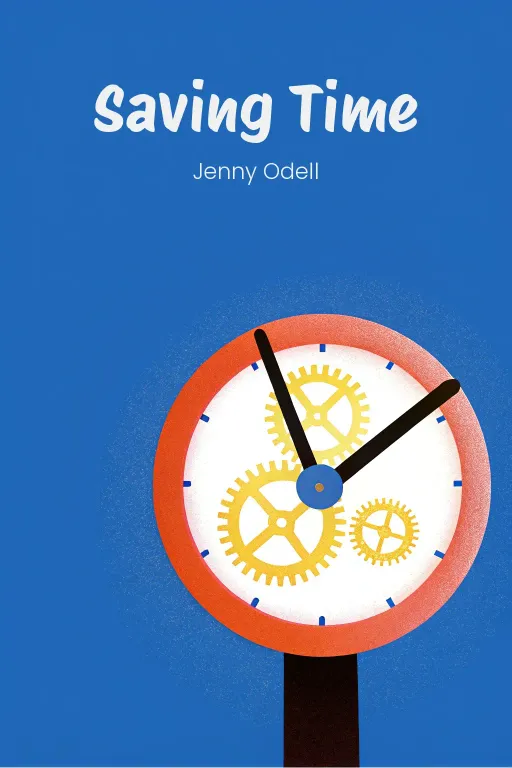
Risk It to Win It: The Accountability Edge
Podcast by Wired In with Josh and Drew
Hidden Asymmetries in Daily Life
Risk It to Win It: The Accountability Edge
Part 1
Josh: Hey everyone, welcome! Today, we’re diving into “Skin in the Game” by Nassim Nicholas Taleb. It's one of those books that really makes you rethink everything you thought you knew about risk and, more importantly, accountability. It basically throws conventional wisdom out the window and asks us to rebuild from scratch. Drew: Exactly, Josh. Now, risk and accountability aren't exactly the most exciting topics, are they? But trust me, this is relevant. Has anyone ever worked with someone who reaps all the rewards when things go well but somehow avoids any blame when things go wrong? Well, that's what Taleb calls a lack of 'skin in the game.' And it's everywhere! Politicians, CEOs, even that one coworker who seems to magically disappear when it's time to work. Josh: Precisely. At its core, “Skin in the Game” argues that personal accountability—actually having something to lose if you screw up—is essential for trust and progress. Taleb takes us through history, economics, even religion, showing us how systems fail when people aren’t sharing the risks associated with their actions. He’s basically forcing us to confront the question: Who ultimately pays the price when things go sideways? Drew: And we're going to break down “Skin in the Game” into three essential parts. First, we’ll define what 'skin in the game' really means. It's like that mythical giant Antaeus, you know, the one who got his power from staying connected to the earth? Shared risk keeps us grounded and strong. We’ll explore why that connection’s often missing. Josh: Then, we'll look at how "skin in the game" exposes hypocrisy. Think about virtue signaling, Drew. People who appear altruistic but don't actually risk much or do much. Taleb calls them out in a big way. Drew: Then, we’re diving into Taleb's, shall we say, “colorful” critique of modern intellectuals. The theorists who are completely detached from the real-world consequences of their ideas, the ones in their ivory towers while the rest of us are in the trenches. Let’s just say, Taleb doesn’t hold back. Prepare for some fireworks! Josh: So, whether you're a philosophy buff, a business mind, or just someone who enjoys a fresh perspective, stay with us. We’re going to unpack why having skin in the game is far more than just about fairness. It's about survival, honestly. Drew: And maybe, just maybe, we'll figure out why the real MVPs are the ones who "eat their own cooking." Yeah, you gladiators of accountability, we're talking to you! Should we dive in, Josh?
The Principle of Skin in the Game
Part 2
Josh: Okay, Drew, so let's dive into what Taleb “really” means by "skin in the game." Simply put, it's this: if you're calling the shots for other people, you've got to share the risks and rewards that come with those decisions. No free passes. You need to have something tangible on the line, whether it's something to lose or something to gain, depending on how things turn out. Drew: It's a beautifully straightforward concept, isn't it? And yet, somehow, the world seems determined to do the complete opposite. Take Antaeus, for example—the mythological giant that Taleb loves to bring up. Remember him? He was invincible as long as he was connected to the earth, his source of power. But the moment Hercules lifted him off the ground, poof, he was powerless and got squashed. Josh: Exactly! Taleb uses Antaeus to show us how crucial it is to stay "grounded"—connected to reality and the real-world results of our actions. That's where true strength and accountability come from. It's when you lose that connection to consequences that things start to fall apart. Think about those modern decision-makers sitting comfortably in their metaphorical ivory towers, so far removed from the actual stakes. That's where the real problems begin. Drew: Oh, and who better embodies that than some of our modern policymakers, right? Remember that intervention in Libya back in 2011? Taleb just roasts them for that. I mean, wow. Josh: Absolutely. His critique is scathing. Powerful Western governments orchestrated those interventions, promising to bring democracy and stability, all from a safe distance. But once the regime in Libya collapsed, the whole country spiraled into chaos, with civil war and immense human suffering. The decision-makers weren't on the ground; they didn't feel any of the consequences. It's a classic case of what Taleb calls detachment. Drew: And it’s not just geopolitics, is it? The 2008 financial crash is another prime example of decision-makers with absolutely zero skin in the game. Bankers, financiers, policymakers—they made decisions so incredibly risky they could have wrecked the entire global economy. And when it all went sideways? They walked away with massive bonuses, while regular folks were left to pick up the pieces. Josh: Right, Taleb does not hold back. He calls out figures like Robert Rubin, the former U.S. Treasury Secretary, who pushed for deregulation that played a big role in the crash. Rubin made millions and lived comfortably. Meanwhile, millions of ordinary people faced foreclosures, unemployment, and financial ruin. The asymmetry of risk and reward couldn't be clearer—when the people at the top aren't invested in the outcome, society picks up the tab. Drew: And that's what's so enraging. It's like playing poker with someone who doesn't risk their own money. They just borrow from the house whenever they lose. There's no real consequence, no loss for them. And that lack of accountability just encourages more reckless behavior. Josh: Good analogy, Drew. But let’s not forget that Taleb also highlights how this principle can actually work, both historically and practically. Take the Code of Hammurabi, for example—one of the oldest legal systems we know. It was surprisingly ahead of its time when it came to accountability. Drew: Oh, I love this example. So, the Code of Hammurabi, ancient Babylon, around 1754 BC. There's this great one: if a builder's shoddy work caused a house to collapse and someone died? The builder would be put to death. Brutal, absolutely. But that's accountability in its purest, most raw form. You mess up, you face the ultimate price. Josh: Brutal, yes, but it effectively instilled a sense of caution and diligence. If you're directly responsible for a bad outcome, you're going to be extremely careful to avoid causing harm. Builders knew that poor workmanship wouldn’t just hurt someone else—it would come right back to them. It’s a stark contrast to our corporatized "too big to fail" mentality. Drew: Exactly! Compare that to these banking executives handing out subprime loans left and right, knowing they wouldn't be the ones facing the consequences. I mean, the system allowed them to privatize the profits and then socialize the losses when everything went south. I can't even imagine what Hammurabi's verdict would have been in that case. Josh: It's fascinating how Taleb integrates this idea of symmetry into his vision for how businesses, governance, and even our daily lives should function. For instance, take entrepreneurs—people who start their own businesses. They inherently have skin in the game. They invest their money, their time, their reputations. Everything is on the line. If they succeed, they reap the rewards, but if they fail, the loss is personal. Drew: Now, contrast that with someone in corporate middle management. These managers can make some terrible decisions and suffer little to no consequence. It's almost like the system is designed to protect them from any real exposure. And let's not even get started on bureaucrats making poor decisions from behind layers of insulation. Josh: Taleb's point is clear: leadership only works when leaders are accountable. When he compares those who are genuinely working in the trenches—entrepreneurs, engineers, veteran investors—with the "armchair intellectuals," it's a real wake-up call. He argues that theory without practice can't give reliable guidance in critical situations. Drew: Right. It's why Taleb values the opinion of a seasoned investor over a financial consultant who just plays around with theory. Who would you trust: someone with their own money at stake in the market, or someone whose worst-case scenario is a client switching advisors? There’s a reason why Taleb swears by practitioners—they're living it. Josh: And when you use "skin in the game" as a way to assess reliable information, it’s incredibly powerful. If someone has a personal stake—if their survival, credibility, or resources depend on the accuracy of what they're telling you—it's much harder for them to exaggerate, lie, or mislead. That pressure to avoid personal risk creates a built-in honesty system. Drew: It's such a simple principle, isn’t it? You'd think everyone would just get it. But, as Taleb says, the problem isn’t the idea itself. It's that actually living by this principle is hard. Given the choice, most people would rather shift risks onto others, avoid personal exposure, and keep the rewards for themselves. That's why these asymmetric systems keep happening, even when they lead to disasters. Josh: And those disasters keep reminding us of the cost of detachment. Like our Antaeus—when decision-makers are lifted off the ground and freed from reality, they tend to create dangerously fragile systems. So, the lesson is clear: accountability, fairness, and sustainability only happen when actions and consequences are tied together—real, personal consequences.
Ethical and Societal Implications
Part 3
Josh: Understanding this leads into some pretty important ethical and societal implications. That's where Taleb really takes it up a notch. He goes beyond just individual accountability to look at how we structure our whole system: institutions, economies, social dynamics, everything. Fairness isn’t just a nice idea, it actually has very practical consequences. Drew: Exactly! Which brings us to the real crux of Taleb's argument: systems that flourish when people have skin in the game versus those that collapse when they don't. Let’s start with ethics. How does accountability–or the lack of it–shape fairness? Josh: Well, fairness is basically rooted in reciprocity. Taleb connects this directly to the idea of risk symmetry. If you're the one creating risks or making decisions that affect others, fairness says you should face the consequences if things go wrong. When that doesn't happen, you get this moral asymmetry where the people at the top avoid the fallout while everyone else suffers. And, sadly, history's full of examples. Drew: Oh, absolutely! And let's bring up Hammurabi's Code. Ancient, yes, but way more insightful than a lot of modern systems when it comes to aligning risks and rewards. Can we just take a moment to appreciate how radical that was? A builder screws up and a house collapses? They paid with their own life! Josh: It might sound extreme by today’s standards, but it established a clear principle: if you cause harm, you share the cost. It made people take their responsibilities seriously because their own lives were on the line. Taleb uses this to show how ethics were built right into the system in ancient Babylon. They understood that unchecked power creates instability. Something we seem to have forgotten, right? Drew: Forgotten completely! Take the 2008 financial crisis, for instance. Top bankers, regulators, policymakers – they built this house of cards and then just stepped aside as it all came crashing down. Those mortgage-backed securities were basically time bombs, and when they went off, who got hurt? Regular people. Lost jobs, foreclosures, decimated retirements. And the people who were actually pulling the strings? They walked away with massive bonuses. Josh: Exactly! Taleb highlights the moral hazard there. These decision-makers faced zero personal consequences while gambling with other people's lives. It's the opposite of Hammurabi's system. Even worse, that lack of consequences encouraged reckless behavior: Why be careful if you're not going to pay the price? Drew: And let's not forget the wonderful world of rent-seeking. You know, extracting wealth without actually creating anything of value. Taleb really goes after those bureaucrats, technocrats, and corporate elites who manipulate the rules to protect their spot and then just…chill. They're untouchable. They fail upwards. Josh: That rent-seeking thrives where inefficiency is rewarded and responsibilities are blurred. It's especially bad in bureaucracies. Taleb criticizes the "Mandarin class," those entrenched elites who enjoy all the perks while shielding themselves from any risk. These systems just stagnate because they're closed off, protecting the people already in power instead of fostering accountability or letting new people rise. Drew: And you even see traces of it in high-minded theory, like Thomas Piketty's Capital in the Twenty-First Century. Piketty talks about inequality, sure, but he kind of misses the asymmetry that Taleb points out. The Mandarin crowd will preach equality… but often in ways that keep them comfortable and secure. Raise taxes – on others. Redistribute wealth – but don't touch their safety nets. Josh: Right! And that's where Taleb's critique really hits hard: systemic hypocrisy. Virtue signaling replaces actual virtue. He says people or institutions who preach fairness but don't bear any personal cost are part of the problem, not the solution. And then he contrasts that with people like Simone Weil. Drew: Weil's the real deal, for sure. Came from privilege, but she didn't just talk about social justice. She lived it. She worked as a factory laborer to really understand the hardships of the people she was advocating for. She put everything on the line for her beliefs. That’s true virtue. Josh: Exactly! Taleb uses Weil to highlight the huge difference between someone who truly lives their values and today's virtue signalers. Corporate campaigns telling us they “care” about climate change while still polluting. Politicians making big promises to help the underprivileged while turning those promises into book deals and speaking engagements. Drew: The discrepancy is just astounding. It's the difference between donating anonymously and posing for pictures while handing over a check. One's genuine, one's PR. Without risk, without cost, you're just talking. Josh: Exactly, and this brings us to large societal shifts, and how persistent minorities, often driven by genuine commitment, can actually enforce change. Taleb calls this the minority rule. Sometimes it's not the majority that decides the norms but a small, uncompromising group. Drew: Halal dietary laws are a fascinating example. Initially, they just affected Muslim communities, but in mixed societies, the logistical challenges of separating halal and haram foods led the majority groups to adapt to the stricter standards of the minority. Economic efficiency, not coercion, drives this. Josh: The thing is, what's critical here is the commitment. The minority's strong preference outweighs the majority's indifference. It's a quiet but powerful type of influence. Taleb compares it to structured resilience. These minorities reshape culture and the market by staying uncompromising while everyone else adapts. Drew: Right, and it isn't always a bad thing, but it could go sideways. It can make harmful rent-seeking behaviors even more entrenched, along with elites who game the system. The interplay between determination, risk-sharing, and societal norms gets complicated. Josh: Agreed, and that's why the need for skin in the game resonates so much. Taleb's not just talking about economics or politics, it's ethics too. Genuine systems of fairness need people to bear risks that are proportional to their influence and their decisions. Only then can we weed out the opportunism and hypocrisy, while also fostering resilience, trust, and a healthier society.
Rationality and Practical Knowledge
Part 4
Josh: So these implications really make you wonder about rationality and practical knowledge in the real world. Taleb offers such a compelling way to look at it, especially when he calls out the limits of just knowing the theory versus actually living through something. Today, let's dive into this idea, starting with how theory can fail us when it’s detached, then celebrating the wisdom you only get from experience, and finally talking about Taleb’s call for integrity, especially in leadership and intellectual circles. Drew, where do you think we should jump in? Drew: Let's kick things off with the green lumber fallacy, Josh. Seriously, it’s such a perfect story Taleb uses to highlight the difference between knowing something in theory and actually being successful in the real world. You've got this lumber trader who doesn’t even know what "green lumber" is—thinks it's painted wood, right?—but he's killing it in the market. How on earth is this guy outperforming all the experts? Josh: Exactly! The trader didn’t need to know the technical definition of green lumber to be successful. What really mattered was his skill at reading the market and knowing how to operate within it. Taleb uses this story to show us that theoretical knowledge—knowing what green lumber is—doesn’t automatically lead to practical success, right? It’s fascinating how he turns expertise on its head. He's basically saying that a lot of times, success comes from intuition and just being aware of what’s going on around you, rather than the high-level understanding we tend to prize so much. Drew: And, honestly, isn’t that kind of a slap in the face to academics and those kinds of experts? I mean, Taleb’s basically saying, "Hey, all you smart folks can sit down because someone who just has common sense and some on-the-ground experience is going to do better than you." But doesn’t this come with risks? If we totally ignore theory, are we potentially losing some useful knowledge that could give us some better predictions? Josh: That’s a really great point, and Taleb’s not saying knowledge is bad. He’s really critiquing knowledge that's not connected to reality. For him, what matters is what actually works—and a lot of times, what works is messy, empirical, and based on learning through trial and error. The green lumber fallacy shows how success comes from understanding how real systems work, even if you don’t understand all the little details. And this makes me think of professions like surgery or firefighting. Do people really care if someone has studied every textbook, or do they care more about whether they can act quickly and effectively when it matters most? Drew: Exactly, I’d much rather have a firefighter who’s been climbing burning buildings for years than, you know, someone who just finished some training seminar and has never seen a real fire. But that brings us to Taleb’s bigger point: that the systems we trust tend to reward those theoretical predictors rather than the practical doers. Politicians, business consultants, Wall Street analysts—they're the ones making all the decisions without really having any skin in the game. Do you think Taleb’s being too harsh on these people, Josh? Josh: Well, it’s hard to argue with him when you look at the 2008 financial crisis, right? He uses that as a perfect example of what happens when theory goes wild. The people who caused the crisis created these really complex financial products—things like mortgage-backed securities and credit default swaps—based on theories that just didn't account for the risk to the whole system. And who suffered the consequences? Definitely not the decision-makers; it was everyday people. Taleb’s point is that the so-called experts built these theoretical castles, and we all paid the price when they came crashing down. Drew: And those decision-makers walked away with huge bonuses while ordinary people lost their life savings. It’s this total lack of symmetrical risk that really makes Taleb’s idea of having skin in the game so powerful. If you’re making decisions but you’re not affected by the consequences, there’s no reason for you to think long-term—or even just responsibly. Josh: That's why he compares these modern failures to historical systems, which actually enforced accountability. One of his favorite examples is Hammurabi’s Code. It's a great illustration of how societies in the past made sure things were fair and that people took responsibility. Think about the law about collapsing houses: if a builder was careless and a house fell down and killed someone, the builder would be executed. Sounds harsh, right? But it’s also a very effective way to make sure that risk and responsibility are aligned. You cut corners, you pay the ultimate price. Drew: And by today’s standards, that would send shivers down the spine of a good chunk of the corporate world. Can you imagine applying Hammurabi’s principle to the healthcare industry? If a pharmaceutical executive pushes a drug to market without properly testing it, and people get hurt… let’s just say, things would feel very different if they were personally accountable for the risks they create. Josh: Exactly. Taleb really goes after modern intellectuals here, calling them "Intellectual Yet Idiot," or IYI. These are the people who are in positions of power, making policies or predictions, but they’re completely safe from any negative consequences. For Taleb, their so-called expertise serves institutions more than individuals, and that often means they create policies that just don't work in the real world. Drew: And here’s the thing: Taleb says that some of these IYI types actually think they’re doing something good. But their disconnection from reality makes them dangerous. They’re like generals who draw up battle plans without ever actually going to the battlefield. It’s not that their theories are necessarily wrong, but they’re irrelevant because they don’t understand the realities of actually putting them into practice. Josh: And we shouldn’t forget about how Taleb critiques their blind faith in scientism. That's his term for when people try to apply scientific methods to areas where they just don't fit—like economics or understanding human behavior. The problem with this? These models often ignore uncertainty, randomness, and the unpredictable nature of really complex systems. They create a false sense of certainty, and that’s what makes them so dangerous. Drew: So, like using a ruler to measure chaos. It’s just not going to work. Which brings us to Taleb’s other point—why things like superstitions can sometimes work better than these abstract theories. He talks about "constructive paranoia," practices that might not make sense scientifically but have evolved to help us manage risks in unpredictable situations. Josh, how do you think this fits into his bigger argument? Josh: Well, it’s about what you might call evolutionary rationality. Taleb gives examples like people in Papua New Guinea who won’t sleep under dead trees. On the surface, it looks like superstition, right? But it’s actually based on a practical understanding: those trees could fall down at any time. He also talks about historical dietary laws, like kosher or halal practices. A lot of these rules were early forms of risk management, especially in preventing foodborne illnesses before we had modern sanitation. Superstitions like these help us deal with randomness—they survive not because they’re rational by modern standards but because they protect communities. Drew: You know what’s crazy? If you tried to explain that to a room full of IYIs, I bet they’d just laugh it off. But, as Taleb says, this is a type of wisdom that comes from experience, from making mistakes and learning from them in order to survive. It’s pragmatism beating intellect, and that’s not something that people who believe in models or academia want to hear. Josh: Taleb’s main point here is that real rationality is about survival. Theories and frameworks can help us think about possibilities, but ultimately, they’re useless if they’re just untested ideas that have nothing to do with the realities they’re trying to explain. Knowledge that comes from survival, whether it’s based on superstition or expertise learned through doing, often leads to better results. Drew: And when you consider the bigger picture—accountability, rationality, fairness—it’s this real-world connection that really stands out as important. Taleb’s argument is about more than just academic theory; it’s a wake-up call for leaders, policymakers, and all of us to stay grounded. Rationality, as he’s redefining it, means making sure that your decisions have consequences that affect you personally. Otherwise, your theories are just painted wood—green lumber in disguise.
Conclusion
Part 5
Josh: Okay, so to bring our conversation to a close, let's circle back to the central idea we've been discussing. From Taleb's viewpoint, "skin in the game" isn't just a nice idea—it's absolutely essential for fairness, for being responsible, and honestly, for making sure things don't fall apart. When the people calling the shots don't have to deal with the mess they create, well, things get shaky and unfair, whether we're talking about ancient Babylon, the big financial meltdown, or how things are run today. Drew: Right. We've gone from the, shall we say, “direct” justice of Hammurabi's Code to how disconnected some intellectuals can be—the "Intellectual Yet Idiot" type, as Taleb puts it. He really pulls no punches in showing how things go wrong when risks and rewards aren't balanced. But, we also saw how things get stronger and fairer when people actually have something on the line. Josh: And what's great is that Taleb isn't just pointing fingers. He gives us a way forward. Whether it’s making sure leaders are accountable or valuing real-world know-how over just theories, the message is clear: what you do needs to match what happens as a result. Being accountable isn't just being good, it's what makes things stable and trustworthy. Drew: So, here's a thought experiment. Look around at what you're doing, and ask—who really has skin in the game here? Who's sharing the risks, and who's just passing them on? Because until we start demanding accountability from ourselves, those in charge, and how everything is set up, we're just going to keep repeating the same mistakes. Josh: And apply this thinking to your own life too. Think about all the decisions you make. How often do you really consider the consequences of your actions? Maybe Taleb’s key lesson is this: to stay strong, stay connected to reality. Essentially, live with stakes. Drew: And remember—even when the world feels super complicated, sometimes the simplest ideas, like "you eat what you cook," can really change things. Josh: Thanks so much for tuning in today. Stay accountable, and we’ll catch you next time.

